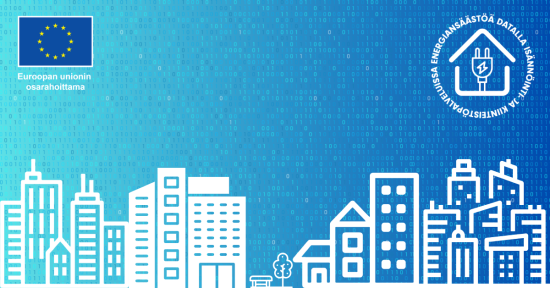Diversity is vital both for companies and for society as a whole. Hurri emphasises that diversity incorporates different perspectives that enrich the work community.
“Diversity helps members of the work community to develop, since they’re surrounded by a variety of perspectives and experiences. This improves work quality and makes it possible to solve more complex problems.”
Diversity can give businesses a competitive edge. Diverse teams are able to come up with more wide-ranging solutions and serve a broader customer base better. Digital services play an increasingly large role in people’s lives, and should therefore serve a diverse range of people. To ensure that services genuinely take account of different needs, it makes sense to have a diverse range of developers.
In Hurri’s view, diversity is particularly important for ICT companies with an international or otherwise wide-ranging customer base. This enables a better understanding of the needs of different markets and cultures.
Committed management: the key to promoting diversity
When it comes to promoting diversity, the ICT sector can lead the way for other sectors. Netlight is an example of a business that has taken significant steps to promote diversity. The company has invested in gender equality and equality in recruitment.
“We promote gender equality and equality in our recruitment processes, for example,” Hurri says. At Netlight, everyone involved in recruitment, including front-line staff, is trained to understand people’s different needs and biases throughout the process.
“Managers need to educate themselves, be curious and prepared to try new things. Human resources departments, in turn, can provide opportunities for training and support in creating structures that accommodate different needs.”
Anderson emphasises that promoting diversity requires dedicated management commitment and awareness.
“The role of management is crucial. If diversity is not decisively put on the management agenda, it won’t translate into action.” In Anderson’s view, once diversity has been truly embraced, the ICT sector can recruit talent from anywhere in the world.
Management and human resources departments can promote diversity in many ways. The first step is raising awareness and training. According to Andersson, a good starting point for promoting diversity is the ability of management to recognise their lack of knowledge and their willingness to learn.
Psychological safety is crucial
Psychological safety is an integral part of multifaceted activities. The term usually refers to a workplace where everyone can express their opinions, ask questions and make mistakes without fear of being criticised, ridiculed or punished.
Psychological safety is essential for benefitting from diversity to the fullest. It creates an atmosphere where everyone feels accepted and able to be themselves. Psychological safety promotes trust and openness, which fosters collaboration and innovation in the workplace.
An excellent example of a business that invests in psychological safety is the ICT company Wunder. Wunder has a diverse workforce, with offices in several countries and more than 20 languages spoken.
The YouTube channel of the EDIFY-EDU project (which addresses the skills gap of Management education with regards to competencies on equality, diversity, and inclusion) presents Wunder’s psychological safety team, which works according to safe space principles and promotes psychological safety throughout the organisation. The initiative to set up this group came from Wunder employees, and it was adopted by the company’s management.
In addition to promoting psychological safety within its organisation, Wunder also trains its clients on its importance. This shows how committed the company is to creating safe and accepting working environments for its employees and customers alike.
Psychological safety: the foundation of a dynamic workplace
Hurri also emphasises that in a psychologically safe workplace, employees can express their viewpoints and experiences without fear of discrimination or belittlement.
When an organisation’s culture supports different expressions of diversity, employees feel empowered to be themselves. This creates the basis for an innovative and dynamic work community.
In addition to promoting gender equality, Netlight’s diversity policies include creating safe spaces for various minority groups.
“The involvement of men in gender equality efforts, launched seven years ago, has led them to work on and become more aware of these issues,” Hurri says. “This has helped to share the burden of gender equality efforts and raise awareness.”
Mentoring for inclusive leadership
Promoting diversity in Finnish workplaces demands continuous effort and commitment. To create more inclusive and equal workplaces, it is important for companies to integrate diversity into their strategy and operations. Not only does this makes businesses more competitive, but it also enriches society as a whole.
Futurice is an example of a company that has taken meaningful steps to promote diversity and inclusive leadership. For instance, the company has implemented an inclusive two-part leadership mentoring programme. Information about the programme is available on the on the EDIFY-EDU YouTube channel.
In the first part of the programme, the company’s management received support from external mentors that presented a new, external management model and fresh perspectives. In the second part, company managers themselves act as mentors to less experienced employees, offering support and guidance in the early stages of their careers.
This two-pronged approach has reinforced a company culture centred on diversity and inclusiveness.
According to Andersson, although Finland’s ICT sector offers promising examples of promoting diversity, there are also significant challenges. Large, international companies may have made impressive strides in promoting diversity, but smaller companies still have a long way to go.
However, Futurice’s mentoring programme shows that commitment and action can make a difference in promoting diversity and inclusive leadership.
Homogeneous organisations hinder diversity
In all sectors, the main obstacles in promoting diversity are related to management commitment and unconscious bias. As Andersson sees it, it will be difficult to bring about real change without clear management communication on the importance of diversity.
“The big challenge is that organisations are still very homogeneous,” she says. “This can easily lead to recruitment decisions focusing on familiar and safe choices, overlooking the promotion of diversity.”
Recruitment practices are therefore important to fostering diversity. Equally important, Andersson says, is for companies to identify and overcome unconscious bias in their recruitment processes. Among other things, this could mean setting up an anonymous recruitment process or diversity awareness training for recruiters.
“If prejudices are not identified and addressed, recruitment decisions can easily be biased towards the same choices over and over.”
Diversity belongs everywhere
There is much that companies can do to further diversity. Andersson recommends starting with an overview of the company’s current situation to identify areas for development and to set realistic targets for what to work on.
“Diversity must be integrated into everything that a company does and communicates. There can’t really be progress if little is done beyond paying lip service to diversity.” To avoid the lip-service problem, diversity objectives should be included in the company’s strategy. This can take the form of setting up diversity working groups and organising training sessions.
Successful diversity-promotion projects can provide valuable lessons for other organisations as well. One example of this that Andersson gives is the possibility for people of different religions to use the religious holidays of their own faith instead of those of the mainstream religion where they are. The success of such projects relies on active internal dialogue and actions that demonstrate the company’s genuine commitment to diversity.
Talent and expertise should not go to waste
In Finnish working life, the main areas for improvement in the field of diversity are skills development and the integration of workers from foreign backgrounds. To Andersson’s mind, although Finland needs more people from foreign backgrounds, PhD-level professionals often end up in jobs that are beneath their education level.
“The sad fact is that there are people in Finland with doctoral degrees working as dishwashers. This certainly isn’t an appropriate use of resources.”
The ICT sector has the potential to create diverse teams that can develop innovative and user-friendly solutions for a wide range of customers.
“If we want services that benefit a diverse user base, we need diverse teams,” Andersson points out. This can serve as an example to other industries and help bring about a more inclusive working life in Finland.
Diversity, equity and inclusion
In Hurri’s view, the themes of diversity, equity and inclusion (DEI) are very often seen as a cost item, but at best as a long-term investment.
“The risk I see is that companies will fail to make the link between DEI and their own operations,” Hurri says. “Without a clear link to the business, efforts to promote these issues will become secondary.”
It is important to recognise that diversity is not a threat in itself, Hurri notes: since the world is inherently diverse, the pursuit of diversity should not be seen as anything strange or alien. However, imbalances can arise if the pursuit of diversity is set as the sole objective without considering equality and inclusion.
“If diversity is a company’s only goal, the essential themes of equality and inclusion may well be overshadowed.”
Diversity requires courage and the urge to learn
Hurri has clear advice for companies that want to become more diverse. The first step is to approach the themes of DEI as a journey that requires an open mind, courage and a willingness to learn through failure.
According to Hurri, companies should be clear on why diversity matters to them and their operations, and should investigate and recognise their current situation in these regards. There are various ways of achieving this, such as conducting DEI surveys, making a related plan, setting clear targets and monitoring their implementation.
In promoting diversity, it is essential to understand that it is a long-term process that requires continual learning, adaptation and commitment. Although the ICT sector can lead the way for other industries in promoting diversity, this requires unwavering commitment from management, clear objectives and meaningful action.
Economic, environmental and social aspects of sustainability
- Sustainability means a company’s or other organisation’s commitment to acting in an eco-friendly manner. Concerted efforts to think in terms of sustainability have their roots in the 1987 report of the Brundtland Commission of the United Nations, which stated that the goal of sustainable development is to leave the world to future generations in at least as good or better condition as it currently is. Sustainability has three aspects: environmental, economic and social.
- Social sustainability focuses in particular on matters related to human rights, working conditions, diversity and community wellbeing. It entails that organisations act fairly and ethically, promote equality and human rights, and work to reduce discrimination and social inequality. Social sustainability also covers the impact of the activities of companies and other organisations on local communities and the wider society.
- Diversity, for its part, means ensuring that the broadest possible range of groups and backgrounds are represented in the company or organisation. There are many forms of diversity, among them diversity in terms of gender, age, ethnicity, religion or sexual orientation. A focus on diversity aims to ensure that everyone has equal opportunities and that different perspectives and experiences are put to use in the organisation.
TIEKE promotes diversity through training projects
- TIEKE maintains various projects that are aimed at promoting and strengthening diversity in its various forms.
- EDIFY-EDU is an international project that focuses on promoting equality, diversity and inclusion. The purpose of the project is to create educational materials and programmes that promote the participation and success of all learners in the education system, regardless of their background or ability. Another aim is to strengthen the capacity of teachers and trainers to accommodate diversity and promote equal learning opportunities.
- The goal of the international Digi Teachers Working Online project is to develop the digital skills of vocational education teachers and provide them with best practices and new ways to improve online teaching. The main focus of the project is on teaching staff and guidance staff who work with students who have special needs. The teachers involved in the project are trained through the project to develop digital pedagogy, which will improve both the capacity for lifelong learning of their students and their own capacity to achieve this.
Collaborate with TIEKE?
Want to help organizations in themes such as digital competence, data economy, real-time economy, or sustainability? Partner with us!
TIEKE Finnish Information Society Development Centre is a non-profit organisation founded in 1981 aiming to develop, improve and support a thriving information society and all its digital endeavours.
We help organizations in various ways:
- Projects and initiatives
- Networking and ecosystem work
- Surveys and studies
- Expert services and advice
- Webinars, online trainings and coaching programmes
- Materials and guides
We have a track record working in various project roles: coordination, partner, expert, comms and more.
We run around 15 projects per year and are familiar with instruments such as CERV, Erasmus, ERDF and ESF.
We work with wide array of target groups such as SMEs, large companies, educational organizations, public sector and associations.
Don’t hesitate to get in touch to discuss collaboration opportunities with us!










